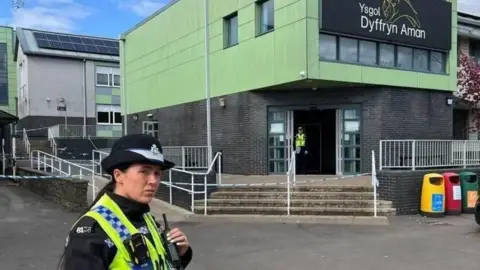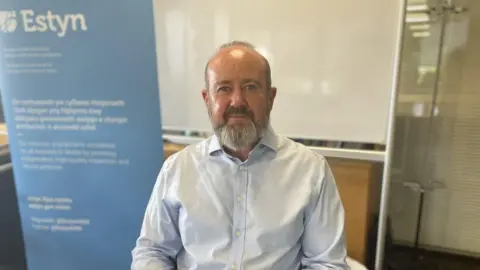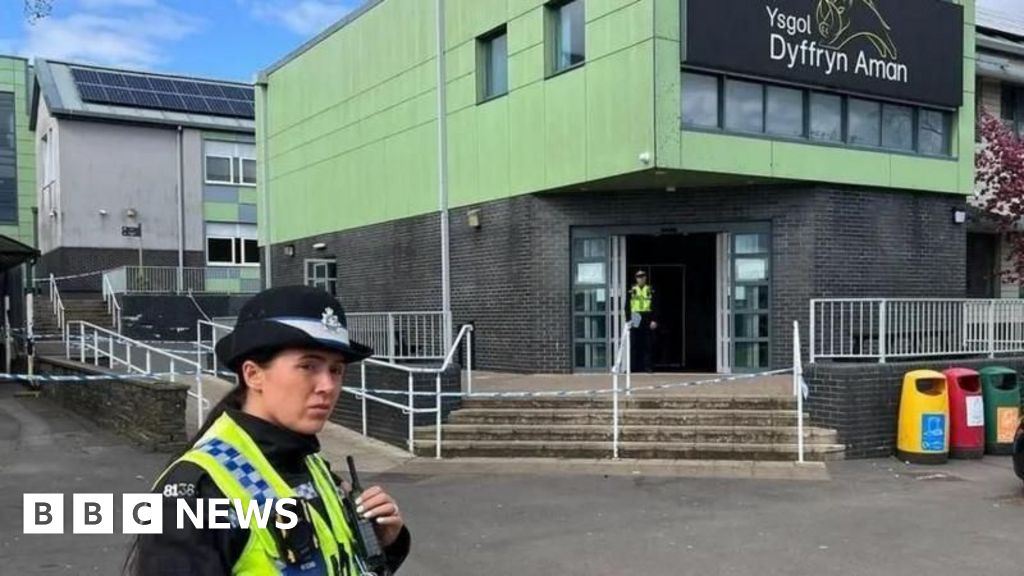
 BBC
BBCUnderstanding why children bring knives into school is better than a blanket exclusion policy, the chief inspector of Welsh education inspectorate Estyn has said.
Owen Evans said the “easy answer” was to ban or exclude but he believed there needed to be more nuance.
He said there were multiple reasons why a child might bring a knife into school and a one-size-fits-all policy would not work.
He was talking after a 14-year-old girl was convicted of the attempted murder of three people during a school stabbing in Ammanford, Carmarthenshire.
“You may have a child that has every potential for redemption but they have fallen into bad practice and we cannot exclude those people from society,” Mr Evans told Walescast.
“I think you need to look at why. A lot of children who bring knives to school feel threatened themselves or they feel that other people are bringing knives to school.
“We need to tackle the root issues that sit behind that decision,” he added.
Although knife attacks in Welsh schools are rare, Mr Evans said “we need to learn from it”.


Estyn is currently preparing for the release of its annual report on the state of education and training across Wales.
Mr Evans said it could see behavioural issues were increasing in schools.
“It isn’t across absolutely everything, but low-level disruption and also these more complex needs we are seeing more of.
“In primary schools we are seeing children who are not potty trained. Since the pandemic, we are seeing young people coming into schools who can’t speak, who can’t communicate.
“That is an issue,” he added.
He said there needed to be more support for pupils, teachers and schools but accepted there were issues with capacity.
“Where you have strong leadership, clear and consistently applied policies to behaviour and when you have good support measures wrapped around child and the family you can make a real difference to behaviours in that setting.
“The support services around that school need to be in a position to pick that up and that at the moment is difficult.
“Demand after the pandemic has almost doubled,” he said.
Wales’ Education Secretary Lynne Neagle said a behavioural summit would be held next year to tackle the “complex” problems facing schools.








